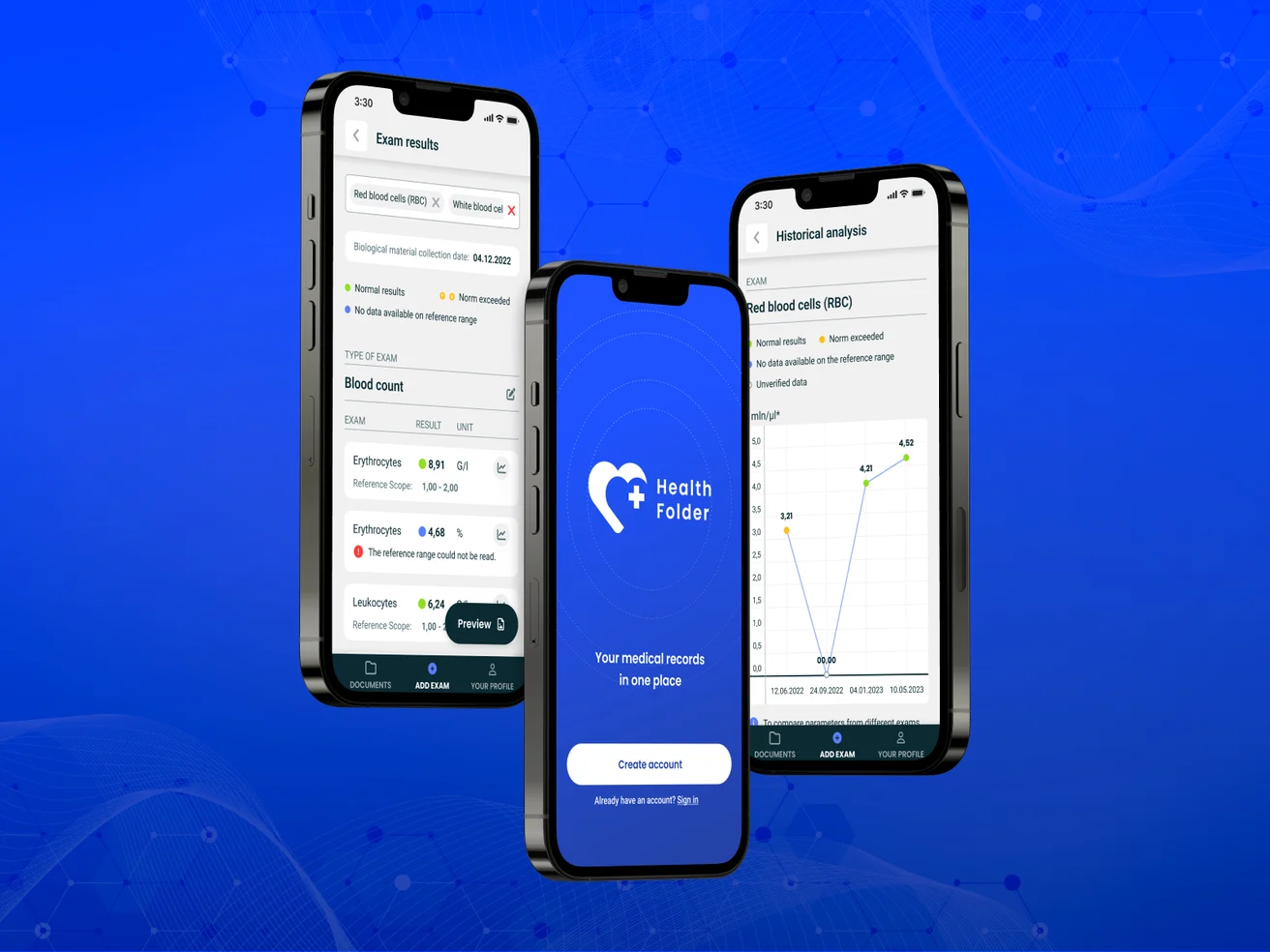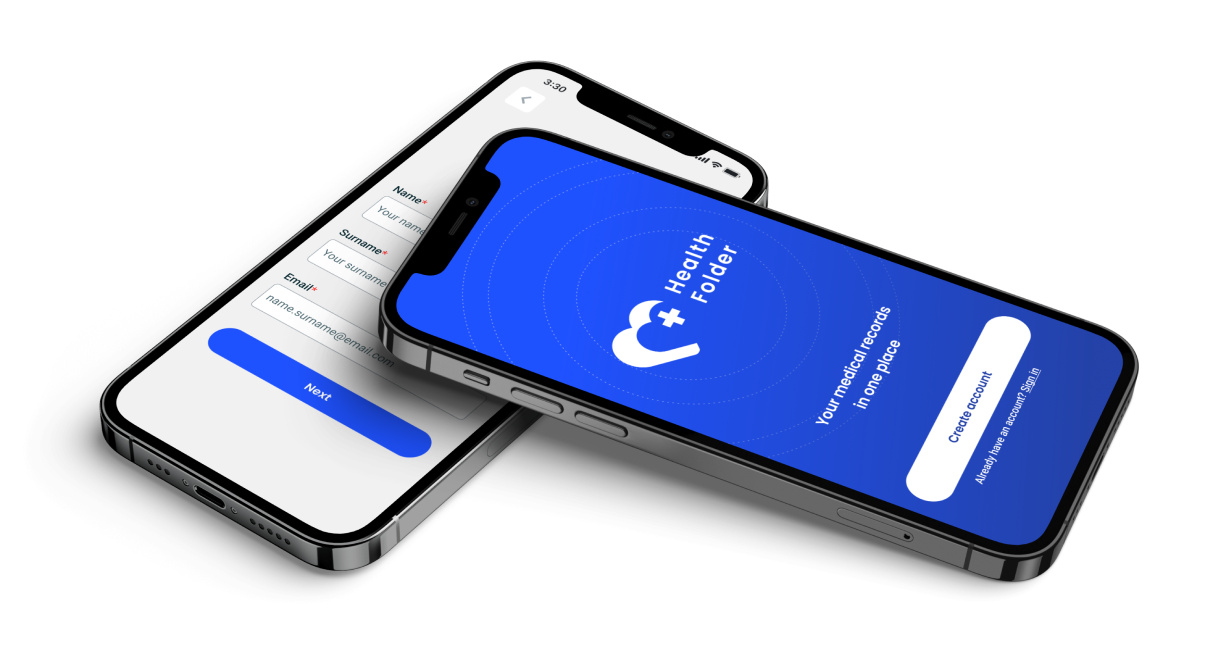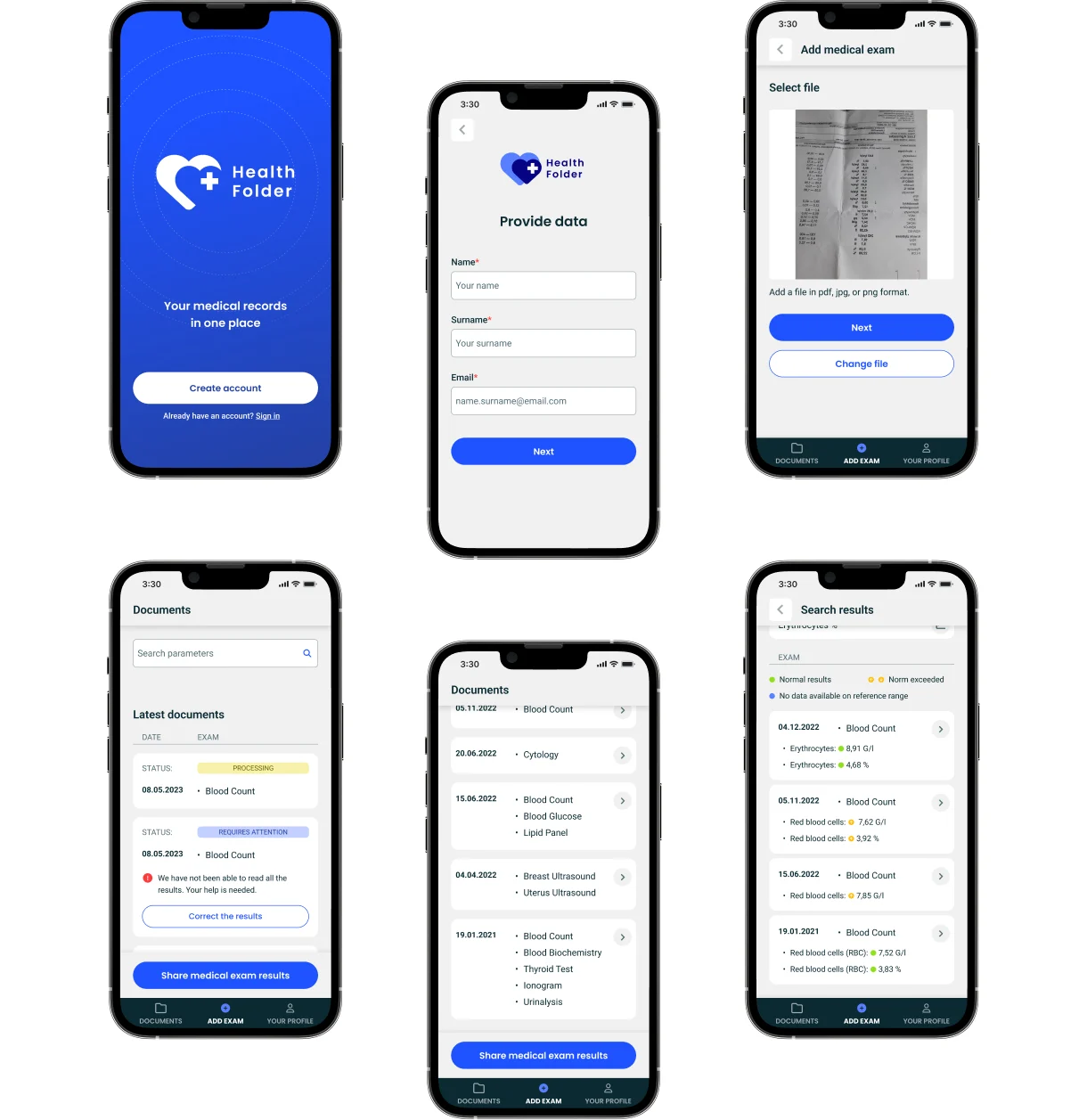Health Folder: Your AI-based digital medical documentation folder

Well-kept medical documentation streamlines the patient’s diagnostic process and makes all test results easily accessible. The problem arises when the patient seeks treatment in multiple facilities.
In most cases, each medical facility has its own database, which forces the patient to carry a folder with all their test results. Especially in countries that have not implemented government-based EMHR (Electronic Medical Health Record Systems) yet. Over time, the folder gets thicker and thicker, making it daunting to find the relevant information. This issue further constrains the already limited duration of doctor’s appointments.
With the help of Pragmatic Coders, Health Folder solves this issue.

About the project
The idea for Health Folder results from the founder’s personal experience. During his cancer treatment, he accumulated dozens of different medical documents. After a few months, finding specific information in that stack of papers became problematic, even for the doctors.
Fortunately, due to a quick response, the cancer was surgically removed before it had a chance to spread, and the founder regained his health. From this experience, an idea for a medical app sprouted in his mind.
Health Folder aims to be a user-friendly application that allows patients to collect, organize, and analyze their medical data in one place.
Challenge
Health Folder approached Pragmatic Coders to develop a MedTech product capable of scanning medical test results and converting them into a digital format. The objective was to create a mobile and web app that would allow patients to access, search through, and share their medical documentation at all times.
Based on this request, our team identified five key points that needed to be addressed in order to deliver value to Health Folder’s users:
- The documentation upload process should be user-friendly and intuitive to encourage app usage.
- The AI model should read and categorize medical test results and be able to make predictions based on the patient’s medical history
- It should also understand all medical documents’ units, formats, and norms.
- The app should allow users to easily correct any errors made by the AI when scanning documents.
- The app should comply with all relevant data protection laws and regulations, prioritizing the security and privacy of sensitive patient data.
The biggest challenge we identified was related to collecting enough medical test results to train the AI model with a high confidence level. This is why we decided to release the mobile app as a first step and offer it for free to early adopters, who would upload their medical documentation. Thanks to that, we would be able to collect enough data to train and improve the AI.
Solution
After brainstorming the key points with the client during a Product Discovery Workshop, we agreed that the solution would be to develop two versions of the application: a mobile app and a web client. This approach would improve the user experience by combining the convenience of uploading medical documentation through a mobile platform with the ability to view data on a large desktop monitor. It would also remove the need for doctors to install the app for accessing patient test results.
The mobile app would enable users to easily manage their medical documentation by adding, editing, verifying, and deleting files. Additionally, it would provide a search option to help users find specific parameters. Moreover, it would have the capability to visualize norms and trends for improved data accessibility.
The web version would enable doctors to view patient data in a browser, offering a comprehensive overview of the relevant medical test results and providing enhanced data protection through session-based functionality. It would also give the option to search for related information within the browser.
Result
We were able to develop the production version of the mobile application within two months. During this period, we also conducted multiple UX tests. This progress was made possible by having initial users who were already using the app and providing us with valuable feedback as we continued its development and made improvements.
At present, our focus is on developing a web client that will enable Health Folder to achieve its full intended functionality, specifically tailored for doctors.

Key outcomes
- The first production version of the mobile app was built in less than two months.
- Optimal user experience was ensured through multiple thorough UX tests conducted with users.
- The initial user base has been successfully established and is continuously growing.
Contents
Let's talk
We’ve got answers on anything connected with software development.
Ask a question
You can ask us a question using the form below. We will respond as soon as possible.
Schedule a meeting
You can also schedule an online meeting with Wojciech, our Senior Business Consultant.

founders who contacted us wanted
to work with our team.
Check our AI & digital health-related articles
Newsletter
You are just one click away from receiving our 1-min business newsletter. Get insights on product management, product design, Agile, fintech, digital health, and AI.

